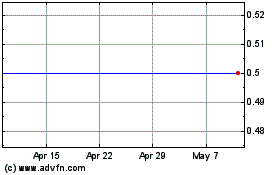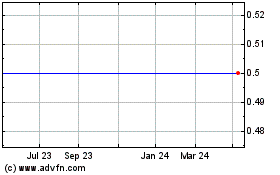AUGA group, AB presents new line of more sustainable organic products for consumers
May 03 2023 - 1:53AM

AUGA group, AB presents new line of more sustainable organic
products for consumers
The agricultural technology developer and
organic food producer AUGA group, AB and its subsidiaries
(hereinafter – “the Group”) are introducing a new line of more
sustainable organic consumer products. The products will be
available tomorrow in Rimi and coming soon to IKI, Maxima and other
stores in Lithuania.
“The Group aims to reduce the environmental
impact of the food production chain. First, by reducing climate
change emissions from agriculture, which is responsible for the
largest share of food-based emissions. That’s why the Group is
implementing the sustainable agricultural practices that already
exist and developing new unique emission-reducing technologies that
the sector lacks. The goal is for consumers to choose products
every day that are grown in Lithuania, products that are not only
organic but also more environmentally friendly,” says Kęstutis
Juščius, the CEO of AUGA group.
The new product line consists of regular
everyday products that Lithuanians tend to consume, including milk
as well as kefir, curd, sour cream, oatmeal, and eggs. The raw
materials for the products are grown and produced naturally in
Lithuania by the organic farming companies in the Group. For
processing products, the Group uses local companies.
Mr Juščius notes that in producing raw
materials, the Group does not just comply with EU standards for
organic farming requirements – using no chemical fertilisers or
other compounds and ensuring animal welfare – but does much more
than the standards require. The group uses agricultural
technologies to store organic carbon in the soil and preserve
biodiversity. The Group also uses green electricity and operates in
synergy between different branches of agriculture to
implement circular economy principles.
But beyond those initiatives, the group is also
developing technologies currently lacking in the market that could
significantly reduce greenhouse gas emissions. The AUGA M1 tractor,
powered by biomethane and electricity, designed by the Group for
professional use, from the first production batch, has already
started testing in the Group’s fields. The choice of biomethane as
an alternative fuel is not by chance – biomethane is one of the
greenest fuel sources. In its production and use cycle, it
compensates for more emissions per unit of energy than it produces.
One biomethane powered tractor reduces carbon dioxide emissions by
up to 100 tonnes per year compared to diesel powered analogues.
The Group has also started the production of
biomethane from agricultural wastes including plant remains and cow
manure. These technologies will be implemented on all the Group’s
farms and will soon have a significant impact on product
emissions.
“Our current technological readiness already
allows us to deliver new, more sustainable green products to
consumers. The technologies we are developing will reduce
emissions step by step and further increase the sustainability of
end products in the future. Climate change effects are growing, and
we invite all consumers who want to eat food that is not only
organic but also environmentally friendly to join our ‘mission no
cost to nature’ and help solve this global problem by thinking
about the choices we make,” says Mr Juščius.
While organic and sustainable production methods
involves higher costs than regular methods, the group aims to make
its new products affordable for consumers – close in price to the
most popular non-organic brands in the corresponding
categories.
The new products’ competitors, Mr Juščius notes,
are all the most popular products in the dairy, oatmeal, and egg
categories: “We focus on consumers’ basic, everyday choices for
different products, aiming to make them common and accessible. This
is why our competitors are not just organic products,” says Mr
Kęstutis Juščius.
The new products have a distinctive design. The
intention is to make them easily recognisable on store shelves and
distinguish the new more sustainable line from the Group’s other
products: ready-to-eat soups, canned vegetables, and others.
“The new product line's minimalist, dark green
packaging not only allows us to stand out on the shelves but also
reflects our values and where our efforts are focused. All of the
products are marked with the trademark ‘auga mission no cost to
nature.’ These words reflect our journey of sustainability and
express a promise to consumers that we seek to deliver. The new
packaging design also has an integrated QR code leading to a
website with more detailed information for consumers about our
sustainability practices and product characteristics,” Mr Juščius
adds.
Kęstutis Jusčius CEO of AUGA Group AB
+370 5 233 5340
Auga Group Ab (LSE:0IR4)
Historical Stock Chart
From Apr 2024 to May 2024

Auga Group Ab (LSE:0IR4)
Historical Stock Chart
From May 2023 to May 2024
